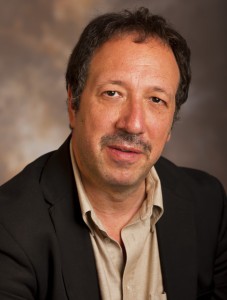Views: 416
Sommaire de la page
On which criteria is based the « recovered memory therapists’s » practice ?

Scott’s answers to Brigitte Axelrad’s questions :
Why is the « recovered memory » belief so popular ?
The belief that memories of early trauma, such as sexual and physical abuse, can be completely forgotten and then recovered in accurate form years, even decades, later continues to be widely held. Thanks largely to many popular films, television shows, and novels, it is widespread among the general public. It is also held by a number of practitioners, especially those influenced by the writings of Sigmund Freud and his followers.
Nevertheless, this belief is not supported by scientific evidence. In fact, it is strongly contradicted by such evidence. These facts explain why the belief has been rejected by the overwhelming majority of the psychological science community, particular prominent experts on the science of memory. Ironically, even Freud himself, who initially believed in recovered memories of child abuse, eventually came to believe that such “memories” were in fact false reconstructions that were often inadvertently implanted by psychotherapists.
Simply put, there is no known memory mechanism whereby the sudden recovery of long forgotten memories can occur. Many studies demonstrate that individuals who have undergone horrific trauma, such as brutal rape, frontline combat in war, or Holocaust experiences, do not forget them. In fact, as the existence of posttraumatic stress disorder amply demonstrates, these people almost always remember these experiences all too well. Of course, in rare cases, individuals do forget traumatic experiences. But most of these isolated instances can be explained by other causes, such as brain damage resulting from war or, in one widely cited study, a lightning strike that knocked an individual unconscious.
Moreover, there is little or no scientific support for the existence of recovered memories. Yes, some adults do appear to recover accurate memories of childhood trauma in psychotherapy or under hypnosis. Often, these apparent recollections emerge following repeated suggesting questions and prompts by well-intentioned but poorly trained therapists. But such memories have virtually never – and many scientists who are experts in the study of memory would argue have never – been corroborated by independent data, such as medical file information.
Why, then, does the belief in recovered memory persist?
There are at least two reasons.
- First, the “memories” recovered in psychotherapy often strike the individuals who have experienced them as genuine;
- undoubtedly, virtually all people who experience these memories are sincerely convinced of their accuracy.
Nevertheless, decades of psychological research have taught us that people’s subjective confidence in their memories is not a dependable barometer of their accuracy. Studies show that many or most people can be quite convinced of certain memories that are demonstrably false. For example, systematic studies of people’s memories of highly emotional experiences, such as memories of the 1986 explosion of the U.S. space shutter Challenger, the death of British Princess Diana in Paris, or the September 11th terrorist attacks in New York City, show that many people are convinced about specific details of these events that are in fact false.
Could you give some examples ?
For example, data show that many Americans distinctly remember seeing the first airplane hit one of the World Trade Center towers on live television; in fact, that memory is impossible because this event was not broadcast on live television and did not become available on a videotape until well after the attacks occurred (only the collision of the second plane was broadcast on live television). Second, what appears to be a “recovery” of a long-forgotten memory may in some cases merely be a reinterpretation of a memory that was already present. For example, studies show that many people recall being touched inappropriately by an adult, such as a parent of babysitter, when they were young children; yet, it is not until they entered psychotherapy or read a book about sexual abuse that they suddenly came to realize that the touching by the adult was in fact sexually abusive. In this case, the only the interpretation of the memory itself is new, not the memory itself.
What about considering « recovered memories » as an evidence in court ?
If the French Supreme Court amends the law to allow for the introduction of recovered memory evidence, it will be flying in the face of enormous bodies of scientific data and well-established knowledge regarding the mechanisms of memory. The last few decades of psychological and medical research have taught us a powerful but largely neglected lesson: Well established clinical lore is not always equivalent to scientific evidence. We must turn to well-established data, not to intuitions or gut hunches, to distinguish scientific fact from scientific fiction. If we do not, we risk incurring serious harm to innocent individuals and their families.
